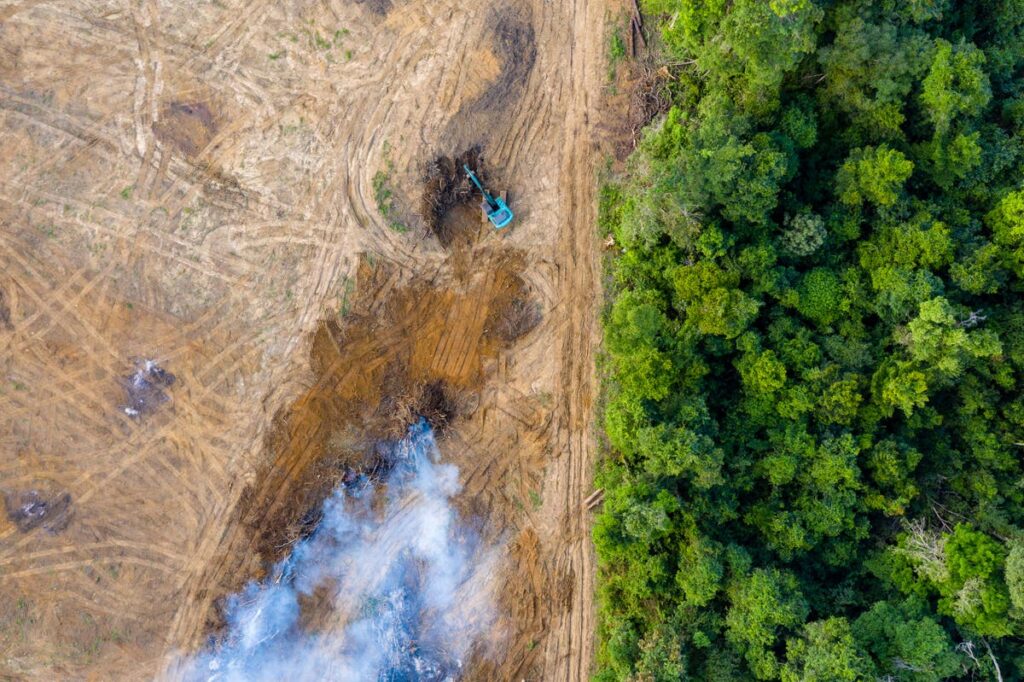The European Deforestation Regulation (EUDR) is imminent, reshaping how companies worldwide manage supply chains.
As the deadline approaches, businesses are racing to ensure their operations align with this comprehensive regulation.
Global Implications of the EUDR
The European Deforestation Regulation (EUDR) is not just an EU-centric policy; its implications are being felt worldwide. The regulation mandates stringent standards for commodities like wood, soy, and palm oil, compelling companies globally to adhere to its rules if they wish to access the European market. This illustrates a significant shift in corporate accountability, where global cooperation is essential for compliance.
The Role of Non-European Entities
Companies outside Europe are directly impacted by the EUDR. With potential revenue losses from import prohibitions and heavy fines up to 4% of annual turnover, the stakes are high. The ripple effect extends to non-EU countries, pushing many to align their regulations with similar standards, as seen with the UK’s Forest Risk Commodity Regulation.
This adaptation reflects a growing trend toward unified global environmental legislation. It also demonstrates the influence of the EU in setting a precedent for others to follow. Non-European firms now face increasing pressure to upgrade their supply chains and ensure compliance with these evolving directives.
Leveraging AI for Compliance
AI technology is emerging as a critical tool for EUDR compliance. Many companies are turning to AI-driven solutions to manage their supply chains effectively. Prewave is at the forefront of this innovation, helping organisations navigate these complex regulations through AI-powered insights.
Such technologies are not just reactive but also proactive, offering predictive analytics to anticipate future regulatory challenges. These AI systems enhance data accuracy, reduce manual work, and promote supplier engagement, enabling companies to meet compliance with minimal friction.
Supplier Management and Smallholder Impact
Efficient supplier management is crucial for EUDR compliance. With the need for detailed producer data, companies face challenges, especially with smallholders. Without technological aid, there is a risk of larger businesses sidelining smaller producers to ease compliance burdens.
AI can mitigate this issue by simplifying data collection and ensuring even small producers can participate in global supply chains. By utilising platforms like Prewave, companies can gather necessary compliance data seamlessly, supporting smallholders and promoting equitable participation.
Risk Management: Beyond Compliance
The EUDR enforces rigorous risk assessments, demanding companies evaluate specific risk factors for their commodities. Although daunting, these assessments align regulatory requirements with best practices.
Advanced AI models, trained over years, offer comprehensive risk analyses that go beyond basic compliance. These tools monitor a vast range of events from deforestation risks to natural disasters, ensuring companies are well-prepared to tackle unforeseen challenges.
This multifaceted approach to risk management not only aids in compliance but also strengthens overall business resilience. Companies equipped with such tools are better positioned to adapt to future regulatory changes and market demands.
Addressing Satellite Imagery Challenges
The use of satellite imagery in verifying land classification poses challenges due to false positives. Such errors stem from the general classification of tree cover by open-source satellites, hindering accurate compliance verification.
However, collaborations with advanced satellite service providers, like Satelligence, offer solutions. Their certified, high-precision data prevents misclassification, enhancing compliance processes and providing companies with reliable, audit-ready information.
The Future of Global Supply Chain Compliance
The implementation of the EUDR marks a pivotal point for supply chain regulations worldwide. It signals the beginning of a new era where AI and technology play a central role in regulatory compliance.
The EUDR is redefining global compliance, urging companies to adapt and innovate. It sets a precedent for future regulations, with AI being pivotal in this transition.

